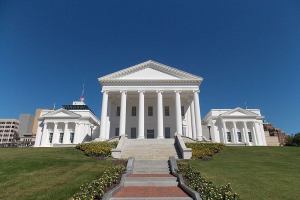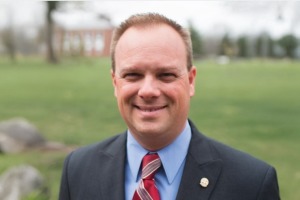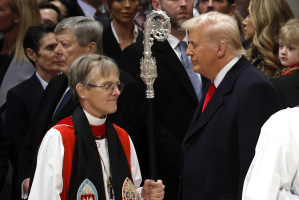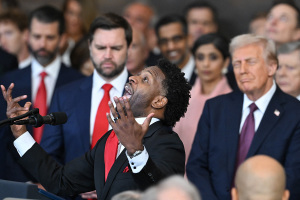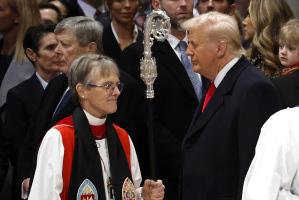Interview: Mark Tooley—A Conservative View on the Methodist Pastor Ruling
In a potentially far-reaching verdict, the top court of the United Methodist Church ruled last week that individual pastors have the authority to choose who can be a member of the local church.
The rulings involved the Rev. Ed Johnson, the senior pastor of South Hill (Va.) United Methodist Church, who was placed on an involuntary leave by Virginia Bishop Charlene P. Kammerer for denying membership to an openly homosexual man.
Johnson allowed the man to attend worship services and take part in the church’s activities, but had not extended the rights to membership. The pastor was in the process of counseling the gay man before he was placed on the leave.
The two rulings overturned the Bishop’s decision and reinstated Johnson.
According to Mark Tooley, director of the Methodist Action in the Institute for Religion and Democracy, the rulings mark a victory for orthodoxy within the 8-million-member denomination.
“All of the decisions that the Judicial Council made upheld the church’s official standards on marriage and sex, and it gives the church a clearer direction now,” said Tooley.
The following is the full text of a Nov. 1 interview with Mark Tooley:
What are the implications of the ruling for local United Methodist churches? Will pastors now have the authority to turn away current members?
Well, it’s very unusual for a Methodist pastor to be reluctant at all to a church member, so I would not be overly concerned that many people will be tuned away.
In this particular case, the Rev. Ed. Johnson would argue that the United Methodist standards say that the homosexual practice is incompatible with Christian teachings.
Theoretically, a layperson can be charged with violating those standards, just as a pastor would, so someone could be immediately removed.
What about people who are divorced?
The church currently does not have any clear standards on divorce and it does not declare divorce to be incompatible with the Christian lifestyle. So the ruling would apply only to homosexual behavior.
Historically speaking, were pastors always allowed to deny membership?
Historically, at least in Methodism, pastors were not required to accept anybody. In Ed Johnson’s situation, he was counseling the homosexual man about church membership and he felt the man was moving in the right direction. However, the pastor did not feel the man was quite where he needed to be. That’s when the Bishop intervened and placed him on leave.
Doesn’t this ruling contradict the “Open Hearts, Open Minds, Open Doors” slogan of the Methodist church?
That motto is an advertising slogan, and it’s not an official doctrine. It has not been helpful in terms of the church keeping it members though. The UMC continues to lose 50 to 60 thousand people a year, and it is not an accurate portrayal of Christian doctrine. I don’t think any Christian has a completely open mind. So yes, this ruling does not seem to fit into what the advertising slogan says about the church, but overall, the ruling is positive.
Doesn’t the UMC advocate opening its doors to all people who wish to worship?
The pastor has the discretion over church membership. Anyone can attend the church. The homosexual man was active in the choir, and he had been attending the church for some months, but membership is something different. You don’t have to be a member to worship at the church, but you need to be a member to vote on the policies of the congregation.
Between Ed Johnson’s case and the case of Beth Stroud, the lesbian pastor who was again defrocked, which would you say has a bigger impact on the life of the church?
Ed Johnson’s is probably more significant in that it was an issue not addressed before. It was ground breaking for that reason.
Any last comments?
All of the decisions that the Judicial Council made upheld the church’s official standards on marriage and sex, and it gives the church a clearer direction now.
















